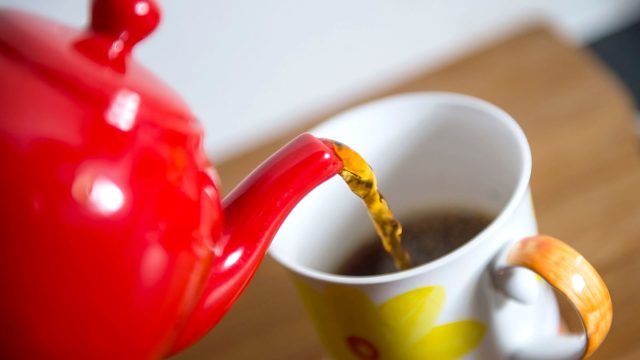
The US embassy in London has criticised new research by an American academic that suggested the perfect cup of tea needed a pinch of salt and a squeeze of lemon.
Michelle Francl, a professor of chemistry at Bryn Mawr College in Pennsylvania, also gave less controversial advice – such as using short, stout mugs to keep tea hotter as they have less surface area.
Other suggestions she also made in comments to The Guardian included that both the mug and milk should be warmed, with the latter added in only after pouring the tea.
Professor Francl also said loose leaves were preferable, but that anyone using teabags should be sure to choose larger ones that allowed the tea to move around more in the water.
However, the US embassy hit back at the suggestion to add salt, saying in a post on X: “We cannot stand idly by as such an outrageous proposal threatens the very foundation of our Special Relationship.
“Tea is the elixir of camaraderie, a sacred bond that unites our nations.
“Therefore we want to ensure the good people of the UK that the unthinkable notion of adding salt to Britain’s national drink is not official United States policy. And never will be.
“Let us unite in our steeped solidarity and show the world that when it comes to tea, we stand as one.
“The US embassy will continue to make tea in the proper way – by microwaving it.”
The Cabinet Office also waded into in the row, saying it “must disagree wholeheartedly” with the US embassy’s statement.
“Tea can only be made using a kettle,” it said.
Read more:
Where’s Walter? Appeal to find stolen wallaby
Harry and Meghan attend Bob Marley film premiere in Jamaica
Nude artist claims museum ‘turned a blind eye to sexual assaults’
Professor Francl analysed research papers and ancient texts dating back more than 1,000 years to decide on the correct method to make the best cup of tea.
It is not the first time tea has brewed a diplomatic row between the US and UK.
The 1773 Boston Tea Party saw demonstrators throw an entire shipment of tea overboard to protest against the British-enforced tax on the commodity.
It was a key moment that intensified support for the American Revolution.








![Stonebwoy holds star-studded party for ‘5th Dimension’ mega album [Video]](https://ghananewss.com/storage/2023/04/stonebwoy-partyy-100x75.jpeg)






